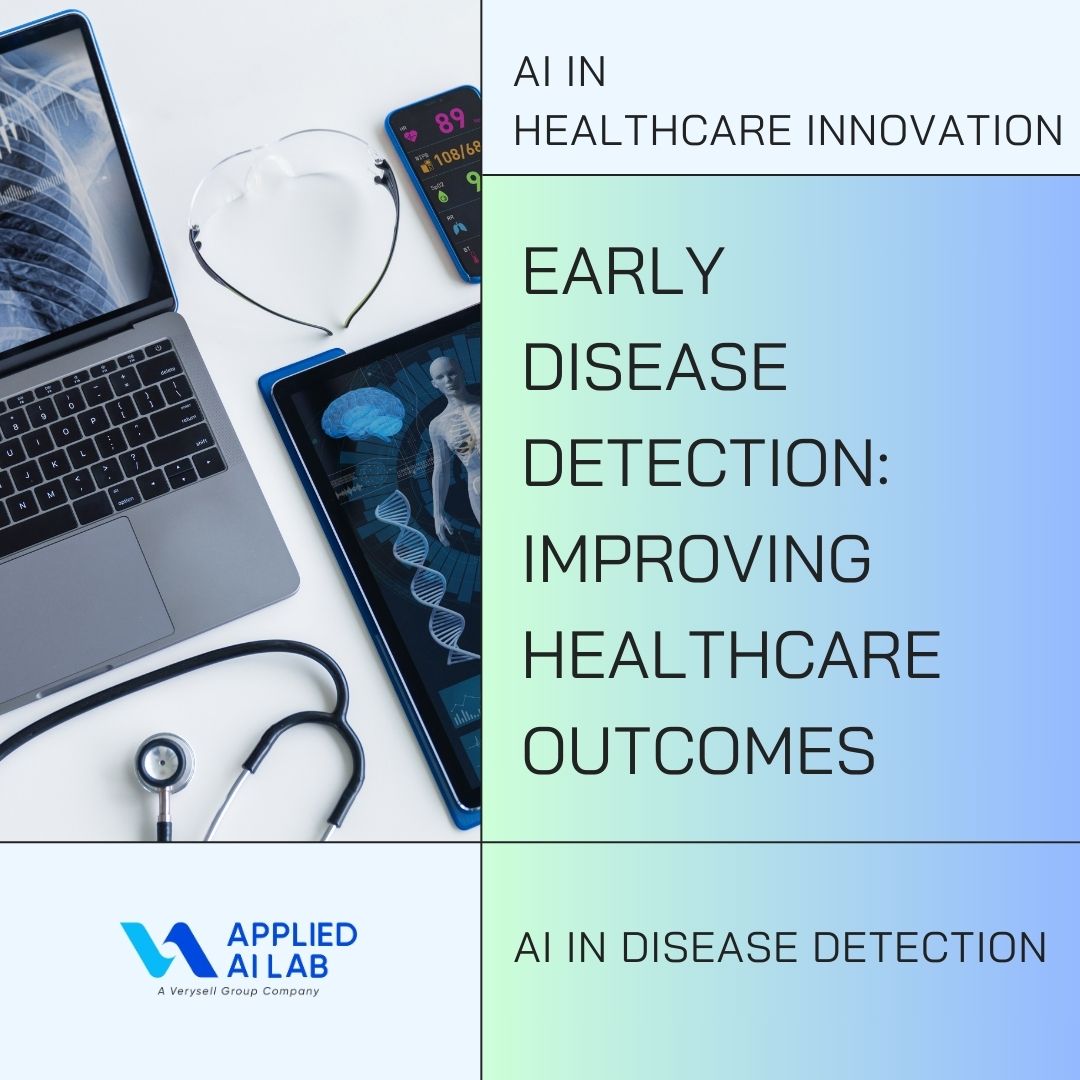In healthcare sectors, advancements in technology, particularly in the realm of Artificial Intelligence (AI), have reshaped the approach to early disease detection. With AI’s capabilities, identifying potential health issues at their onset has become a game-changer, significantly improving healthcare outcomes and patient well-being. This article delves into the crucial role of AI in disease detection, focusing on how AI innovations are transforming the early diagnosis and treatment of diseases.
For additional insights into the healthcare industry, we invite you to explore the following article: AI-Enabled Diagnostics: Improving Accuracy and Speed. This post examines further the impact of AI on diagnostics, highlighting its role in improving accuracy and speed in healthcare, complementing the advancements in early disease detection discussed above.
AI in Disease Detection: Revolutionizing Healthcare
The integration of AI in disease detection has led to a paradigm shift in healthcare. AI algorithms, through machine learning and data analysis, are capable of sifting through vast amounts of patient data, identifying subtle patterns and anomalies that might indicate the presence of a disease. By continually learning from these data sets, AI enables early detection and diagnosis, which is crucial for initiating timely and effective treatments, ultimately improving patient outcomes.
As Verysell Applied AI Lab, our commitment to developing AI-driven solutions tailored specifically for disease detection has significantly impacted the healthcare sector. Through cutting-edge algorithms and machine learning techniques, our AI technologies continuously evolve to identify potential health risks, offering a proactive approach to healthcare management.
The Role of AI in Early Disease Detection
AI plays a pivotal role in the early detection of diseases by analyzing various health indicators and patterns. This includes interpreting medical imaging, genomic data, patient records, and even lifestyle factors to identify potential health risks. By swiftly recognizing anomalies or deviations from the norm, AI enables healthcare professionals to intervene at an early stage, allowing for more effective treatment plans and reducing the progression of diseases.
AI’s Impact on Healthcare Outcomes
The integration of AI in disease detection significantly improves healthcare outcomes. By aiding in early disease diagnosis, AI not only helps in initiating timely treatments but also assists in personalizing patient care. This leads to improved prognoses, reduced complications, and better overall patient well-being. The adaptability of AI systems to learn from new data continuously enhances their disease detection accuracy, leading to more efficient and precise diagnoses.
With dedicated research and development efforts, we have resulted in groundbreaking AI technologies specifically designed to identify potential health risks early on. By continuously refining and improving algorithms, we want to set new benchmarks in healthcare innovation, significantly contributing to improved patient outcomes and healthcare practices.
Conclusion: Transforming Healthcare through AI in Disease Detection
The integration of AI in disease detection has redefined the healthcare landscape. Its ability to swiftly detect potential health risks and diseases at an early stage marks a fundamental shift in healthcare practices. With the help from Verysell Applied AI Lab, your healthcare institution will join hand in shaping the future of healthcare, revolutionizing disease detection and significantly contributing to better healthcare outcomes and patient well-being.
AI’s role in early disease detection is not merely an advancement but a transformative force in healthcare. Its ability to detect diseases in their early stages empowers healthcare professionals to intervene effectively, leading to better patient outcomes and improved healthcare practices. Embracing AI-driven disease detection solutions is essential for ensuring a brighter and healthier future for patients worldwide.


